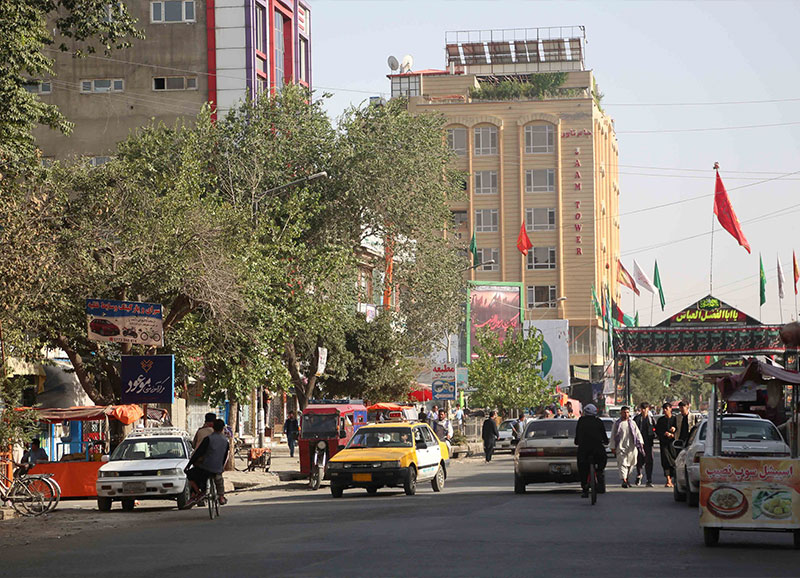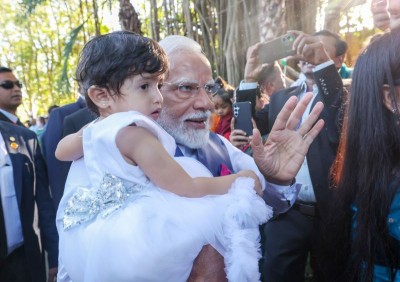 ISKP
ISKP
IS-KP - Taliban: Puritanical Killings
On August 17, 2022, a suicide attack killed at least 21 civilians, including a prominent Sufi cleric Mullah Amir Mohammad Kabuli, and injured at least 27, in the Siddiquiya Mosque located in the Kher Khanna neighborhood in Police District (PD) 17 of Kabul city. No group has claimed responsibility, but the role of the Islamic State-Khorasan Province (IS-KP) is strongly suspected.
On August 11, 2022, a prominent pro-Taliban cleric, Sheikh Rahimullah Haqqani, was killed, along with two civilians, in a suicide attack at a seminary inside a madrassa in Kabul. The IS-KP claimed responsibility and declared that the cleric had, in his fatwa [a formal ruling or interpretation on a point of Islamic law given by a qualified legal scholar (mufti)] declared IS-KP members Wahabi and and Khariji, thus liable to be killed. The Wahabi sect are followers of the puritanical Islamic movement founded by Muammad bin Abd al-Wahhab in the 18th century in Najd (present day Saudi Arabia). The Khariji were the first identifiable sect of Islam, regarded as deviants and renegades among the Sunnis.
According to partial data maintained by the South Asia Terrorism Portal (SATP), a total of 13 incidents targeting ethnic and religious minorities’ places of worship or areas where they are predominant have occurred in Afghanistan, resulting in 325 fatalities (316 civilians, two Taliban cadre and seven IS-KP terrorists) since August 15, 2021, the day the Taliban took over Kabul (data till August 21, 2022). Apart from the two incidents above, the other prominent incidents included:
June 18, 2022: At least two people, a member of the Sikh community and a member of the Taliban forces, were killed, and seven were injured, in a militant attack on a Gurudwara [Sikh place of worship] in the Karte Parwan area of Kabul city. IS-KP later claimed responsibility for the attack and identified the attacker as Abu Muhammad-al-Tajiki.
May 25, 2022: At least five worshippers were killed in an explosion inside Hazrat Zakaria Mosque in PD 4 of Kabul city. Later, IS-KP claimed responsibility for the attack. On the same day, at least nine Shias were killed and another 15 injured, in three consecutive explosions in three passenger minivans in Mazar-e-Sharif, the provincial capital of Balkh. The first explosion targeted a minivan in PD 5 of Mazar-e-Sharif. Another two explosions occurred in two other minivans in the Karta-e-Ariana area of the PD 10 of Mazar-e-Sharif. Later, IS-KP claimed responsibility for the attack. Most of the dead were from the Shia Hazara community.
April 29: 50 worshippers were killed in a suicide blast in the Khalifa Sahib Mosque on Darul-Aman Road in Kabul city of Kabul Province. No group claimed responsibility for the incident.
April 28: Two Improvised Explosive Device (IED) explosions in a predominantly Hazara Shia area of Mazar e Sharif killed 11 persons and injured 19. IS-KP claimed the attack.
April 22: At least 33 people, including children, were killed and 43 were injured, in an explosion inside a mosque in the Imam Sahib District of Kunduz Province. IS-KP claimed the attack.
April 19: A series of three IED explosions targeting a school and a private educational center in the Dasht-e-Barch area, a predominantly Hazara Shia neighborhood in Kabul, killed 18 persons.
April 21: An explosion left 50 worshipers dead in the Sih Dokan Mosque, a Shiite Mosque, in Mazar-e-Sharif, the provincial capital of Balkh. IS-KP claimed responsibility for the incident.
November 12, 2021: Three persons were killed in an IED explosion in a mosque in Spin Ghar District of Nangarhar Province. No group has claimed responsibility for the incident.
October 15, 2021: At least 65 Shia devotees were killed in a suicide bombing attack at Imam Bargah Fatimeyah mosque in PD1 of Kandahar city in Kandahar Province. IS-KP claimed the attack.
October 8, 2021: At least 47 persons, including 46 Hazara Shia worshipers, were killed when an IS-KP suicide bomber blew himself up at Sayyidabad mosque in the Khanabad Bandar area of Kunduz city, the provincial capital of Kunduz. IS-KP claimed the attack and identified the bomber as an Uyghur Muslim.
Out of these 13 incidents, eight have been claimed, all of them by IS-KP. The remaining five are yet to be claimed or attributed to any terrorist group by Taliban authorities. The role of IS-KP is, however, suspected in most or all of them, as it is the only major terrorist outfit active in the country, at present, which opposes the Taliban regime and targets civilians. The resistance forces mainly target Taliban fighters.
Moreover, according to SATP, at least six incidents targeting persons on the basis of their sectarian, religious and ethnic identities were recorded during this period, resulting in eight deaths. Prominent among these were:
August 5: IS-KP gunmen killed Mawlawi Mohammad Qayyum, a religious leader, while he was performing morning prayers at a mosque in the Chaparhar District of Nangarhar Province.
August 5: The Taliban took away and later killed Abu Ahmed Salafi in Jalalabad, the provincial capital of Nangarhar Province.
July 13: Unidentified gunmen killed a ‘pro-Taliban’ Salafi scholar, Sheikh Sardar Wali Saqib, in his house in Kabul.
July 7: Unknown gunmen killed Mullah Abdul Qudos Hakimi and his son Abdul Hamid, in the Khaje Bughra neighborhood under PD 15 in Kabul city.
December 23, 2021: Unidentified gunmen killed a religious scholar, Mawlawi Bismillah Shakir, in the Kotal-e Khair Khanah area of PD 17, Kabul city.
October 25, 2021: Unidentified gunmen shot dead a religious scholar, Mufti Saeedullah Saheel, in Jalalabad city.
September 2021: Three Salafi clerics, believed to be IS-KP sympathizers, were killed. Abu Obaidullah Mutawakkil and Muhammad Nabi Muhammadi were killed in Kabul on September 5; while Mullah Ibrahim was killed in Zabul Province in early September (specific date not available).
These incidents and numbers, however, grossly understate the scale of the killings.
Indeed, the United Nations Assistance Mission in Afghanistan (UNAMA) in its report ‘Human rights in Afghanistan: 15 August 2021 – 15 June 2022’, released on July 20, documented 2,106 civilian casualties (700 killed, 1,406 wounded) during this period.
The report further noted that the majority of the 2,106 civilian casualties during this period were attributed to targeted attacks by “Islamic State in Iraq and the Levant – Khorasan Province”, against ethnic and religious minority communities in places where they go to school, worship and go about their daily lives.
Significantly, the United Nation Security Council's (UNSC)s 'Thirtieth report of the Analytical Support and Sanctions Monitoring Team submitted pursuant to resolution 2610 (2021) concerning ISIL (Da'esh) [IS-KP], Al-Qaida and associated individuals and entities', released on July 15, 2022, expressed serious concerns over the growth of IS-KP, stating,
ISIL-K [Islamic State Iraq and Levant-Khorasan] [IS-KP] has increased its presence in northern and eastern Afghanistan… In April 2022, ISIL-K claimed it had fired rockets into Tajikistan and Uzbekistan. Although both countries denied that rockets had reached their territory, the risk of similar attacks remains. The aims were to undermine the credibility of Taliban security forces by demonstrating their inability to control the borders, and to attract new recruits from the region. It is unclear whether ISIL-K can regain lost territory in eastern Afghanistan. Should they succeed, it may prove difficult for the Taliban to reverse such gains. According to one Member State, ISIL-K would then be positioned to develop a global threat capability from Afghanistan.
Meanwhile, the July 20 UNMA report documented 59 extrajudicial killings, 22 arbitrary arrests and detentions and seven incidents of torture and ill-treatment by the Taliban authorities, of individuals accused of affiliation with IS-KP. Most of these were linked to the Ahl-e-Hadis sub-sect of Sunni Islam which the Taliban believes are IS-KP backers. Though the Taliban publicly denied its involvement in any of these incidents targeting religious leader, it did not condemn these killings.
The IS-KP, on the other hand, is trying to contest the Taliban movement ideologically in order to win over supporters. In a column titled 'American Project' in the 8th volume of its mouthpiece, Voice of Khorasan, it asserted,
Apostate Taliban were humiliated from the beginning when its foundation were laid by ISI [Inter-Service Intelligence] and CIA [Central Intelligence Agency] as a result, the nullifiers of Islam were applicable on that organisation from the beginning (sic)…
Significantly, most of the IS-KP cadres belong to the Ahl-e-Hadis sub-sect of Sunni Islam, while the Taliban are Hanafis. The Ahl-e-Hadis movement is a puritanical sect of Islam that stresses monotheism and rejects classical schools of Islamic jurisprudence, calling for a return to Islamic practices of Prophet Mohamad’s time.
Significantly, the latest two incidents took place after a July 19, 2022, fatwa issued by IS-KP’s ‘judicial department’, which authorized the killings of ‘polytheists, infidels and apostates’ in their places of worship.
Under the prevailing circumstances, with the Taliban and IS-KP struggling for ideological and territorial dominance, civilians drawn from different denominations, both within Islam and others, are likely to continue to bear the brunt of violence. As the Taliban – IS-KP confrontation escalates, such violence can be expected to augment even further.
Support Our Journalism
We cannot do without you.. your contribution supports unbiased journalism
IBNS is not driven by any ism- not wokeism, not racism, not skewed secularism, not hyper right-wing or left liberal ideals, nor by any hardline religious beliefs or hyper nationalism. We want to serve you good old objective news, as they are. We do not judge or preach. We let people decide for themselves. We only try to present factual and well-sourced news.







